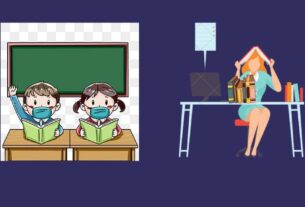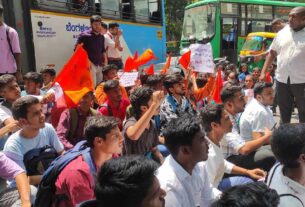The National Education Policy (NEP) emphasizes students’ mental health and well-being but students say they do not get proper assistance.
Many students say that they are not provided with a counsellor or well-being teacher at their schools. The affiliation Bye-Laws of the Central Board of Secondary Education (CBSE) say that schools should appoint a counsellor or a wellness teacher. Research by the Associated Chambers of Commerce and Industry of India (ASSOCHAM) shows that only three percent of schools in India have appointed counsellors.
Rashi (name changed), a high school student does not have a counsellor in her school. She said, “There is always extreme mental pressure due to academics, friends and family. If I had a counsellor at my school, it would have helped me deal with the situation. Just talking about and discussing my problems would have been helpful.”
The Mental Health and Well-being of School Students Survey of 2022 by the Department of Educational Psychology and Foundations of Education shows that 81 percent of students are anxious about studies and 50 percent seek help from friends, teachers or parents to manage their feelings.
Annie Sakhuja, a clinical psychologist said, “While doing research on slum children studying in senior secondary, I found out there is no mental health awareness. People still label a person with mental illness as ‘mentally challenged.” She further said, “Private schools are working towards mental awareness, but only to a minimal extent.”
Parents say that school counsellors should not only provide emotional guidance to students but it is also important for them to guide them in their career choices.
Rekha, mother of Rashi said, “In order to continue with a peaceful life amid the stress of academics, professional help is needed. A person other than their parents should guide them about their future choices as students find it comfortable talking to them.”
The Mental Health and Well-being of School Students Survey also shows that 17 percent of students prefer online learning due to a lack of social interaction.
Rajshri Anand, a teacher at YMCA School, said after the pandemic there is an increased need for a counsellor in schools as“Introvert students became more hesitant and underperforming students were worried that they would not be able to cope with school. They were more comfortable during online classes, but that is not the proper solution.” She also said, “Such students need counsellors to talk about their issues and survive in the school atmosphere.”
The Career Guidance Industry Landscape report of 2021 shows that the US has an average counsellor-student ratio of one counsellor per 492 students and India still needs 1.4 million career counsellors for 315 million students to maintain an acceptable student-to-counsellor ratio. The ratio is currently 500 counsellors for 1.5 million students.
However, schools that do not have assigned counsellors find other ways to help students in their stressful situations.
Ruma Satra, principal at an elementary school thinks that teachers at school are enough for counselling. She said, “There is no counsellor in the school but we have teachers who pay attention to students’ mental health. We try our best to listen to their problems in a way they prefer, whether it is about any mental health issue or career-related distress.” She further said, “If we sense that a student’s condition is beyond our help, we immediately inform their parents and suggest professional help.”




